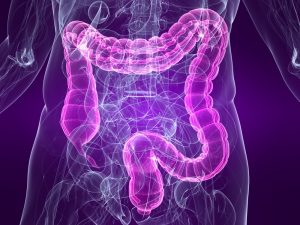Our gut is home to 100 trillion microbes, a complex and influential ecosystem.
The gut microbiota has a crucial role in health and disease. Disruption to the gut microbiota has been linked with gastrointestinal disorders, allergies, asthma, obesity, even with brain function and health such as autism, anxiety.
The gut is also called the “second brain”.
The concept of the gut influencing brain, and vice-versa, has been appreciated due to the fact that the gut harbours a vast network of millions of neurons that send and receive messages and respond to emotions.
Perhaps that’s the reason why there is wide integration of the “gut-brain” concept into our everyday vernacular e.g., gut feelings, gut-wrenching, gut instinct, gutted, gutsy, it takes guts, butterflies in one’s stomach.

Although brain development and function appear to be modulated by changes in the gut microbiota, presumably via the gut-brain axis, the extent of this influence during very early life is unclear.
Researchers from University College Cork, University of Groningen, Wageningen University, Academic Medical Center Amsterdam, Nutricia Research Utrecht and Singapore reviewed the known associations between the gut microbiota and brain development and brain function in early life to better understand the potential mechanisms underlying this complex relationship. They also looked at how nutritional interventions can further modulate the microbiota and, ultimately, brain development and function.
“In the first 2 – 3 years of life, the gut microbiota of infants quickly becomes diverse and rich. Disruptions in the evolving gut microbiota during this critical developmental period can impact brain development,”
said Dr. Ingrid Renes, principal scientist of Gut Biology and Microbiology from Nutricia Research Utrecht.
Evidence reveals that microbes are able to regulate the bidirectional communication between the brain and gut. This complex microbiota-gut-brain communication is driven by a variety of pathways including barrier function, hormonal and neural regulation (e.g., HPA axis), as well as immune and metabolic function (e.g., tryptophan metabolism).
Early life nutrition (e.g. early postnatal diet, fatty acids, prebiotics and probiotics) is an important modifiable factor that can shape both gut microbiota and brain development.
“Preclinical as well as clinical research has convincingly shown that early life nutrition can shape the gut microbiota and may affect brain development and function,” said Dr Shugui Wang, senior scientist of gut microbiology from Nutricia Research Singapore.
“However, very few studies have investigated whether specific nutrients or nutritional supplementation known to benefit brain development also influence the gut microbiota and whether any such effect has a significant contribution and could be part of the mechanism of action,” added Dr. Wang, the first author of this review paper.
Understanding the complexity of the microbiota-gut-brain relationship and its specific window of opportunity is instrumental in devising nutritional strategy to promote and protect normal brain development, and to reduce the risk on neurodevelopmental and neuropsychiatric disorders in early life.
Read the full article here